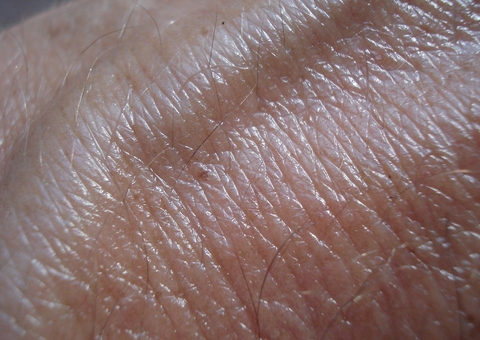
Orange December is Skin Cancer Awareness Month. According to data from the National Cancer Institute (INCA), this type of tumor is the most common among Brazilians, accounting for a third
Of all cancer cases diagnosed in the country. Of the reports of skin cancer, about 95% are non-melanomas, and it is the fifth most common tumor in the world, with more than one million new cases each year. The Brazilian Society of Clinical Oncology (SBOC) highlights the importance of the month dedicated to the prevention of the disease, which, although the most common, is also preventable.
Clinical oncologist and coordinator of the SBOC Skin Tumors Committee, Dr. Rodrigo Villarroel, explains that this type of cancer often goes unnoticed in terms of symptoms, because it does not generally cause pain.
According to him, the presence of the tumor can be observed through spots or lesions, especially in exposed areas, such as the face and hands. “It is essential for people to pay attention to any wound-like skin lesion, which does not heal properly. Injuries that last indefinitely or those that bleed and change in size over time should be closely monitored and deserve due attention,” the specialist stresses.
The difference between non-melanoma and melanoma cancer
The main difference between non-melanoma skin cancer and melanoma skin cancer is the types of skin cells affected. Melanoma develops in melanocytes, which are the cells responsible for producing melanin, the pigment that gives color to the skin. This type of tumor is less common, but more aggressive, and if not treated early, can be fatal, because it has the potential to spread to other parts of the body (metastasis).
Non-melanoma skin cancers include basal cell carcinoma (BCC) and squamous cell carcinoma (SCC), which originate in the cells of the epidermis, the most superficial layer of the skin. These cancers are considered less aggressive, especially basal cell carcinoma, which is responsible for 80% of cases. “This type allows growth over months or even years, without the ability to spread to other parts of the body,” explains the oncologist.
Early diagnosis
However, this apparent low severity of non-melanoma skin cancer can lead to a delayed diagnosis. “Some people neglect diagnosis, allowing the tumor to develop over a long period of time, sometimes resulting in extensive lesions. It is worth noting that skin cancer can be localized and, with appropriate treatment, is often curable. The doctor adds: “This early diagnosis may not significantly affect the mortality rate, keeping it at low levels.”
Risk factors
Among the main risk factors given by the specialist, excessive and unprotected exposure to UVA and UVB rays is the most important. Sunburns can cause serious injuries and the development of some types of skin cancer throughout life, and these burns are not limited to natural light; Artificial tanning beds can also have an impact on the development of tumors. Skin type is also a risk factor, as people with lighter skin are more likely to develop it
This disease differs from other groups because they have a lower concentration of melanin, which protects the skin.
protection
December is the beginning of summer and the holidays, that is, the time of year when people are exposed to the sun's rays, and therefore to ultraviolet rays, but skin cancer is preventable. Dr. Rodrigo Villarroel explains that during this period in particular it is necessary to take care of your skin, avoid exposure to the sun between 10 am and 4 pm, always use sunscreen all over the body, a minimum sun protection factor SPF 30, and reapply every two hours, Always after swimming in the sea or pool, and when it is not possible to avoid exposure to the sun's rays, wear protective clothing
Sun protection, such as long-sleeved shirts, long pants, wide-brimmed hats, and sunglasses with UV protection.
“Due to the tropical nature of the country, exposure to sunlight occurs throughout the year in different areas. Skin cancer can be prevented with small measures, which are not limited to the summer, but should be adopted throughout the year. “For this reason, it is very important to protect the skin, and if changes occur, you should immediately see a doctor, because early diagnosis increases the chances of treatment,” the specialist adds.

“Friendly zombie guru. Avid pop culture scholar. Freelance travel geek. Wannabe troublemaker. Coffee specialist.”



:strip_icc()/i.s3.glbimg.com/v1/AUTH_b0f0e84207c948ab8b8777be5a6a4395/internal_photos/bs/2024/G/7/jVftWLQ4azAQrwLGcy7Q/xoia2.jpg)


